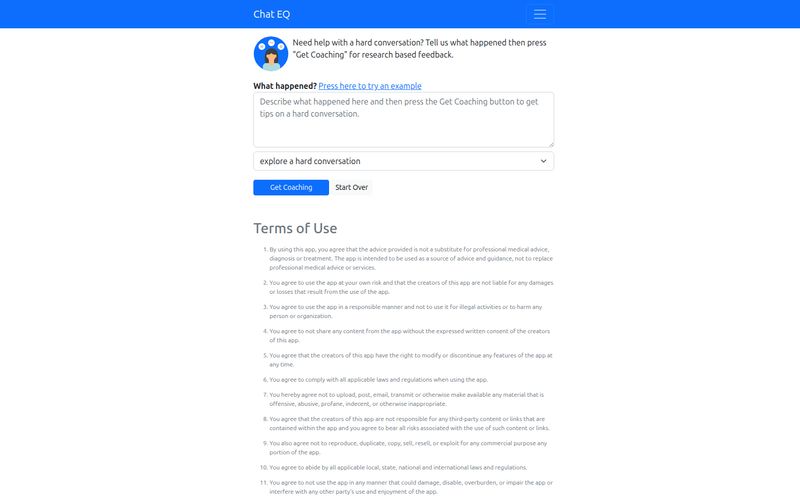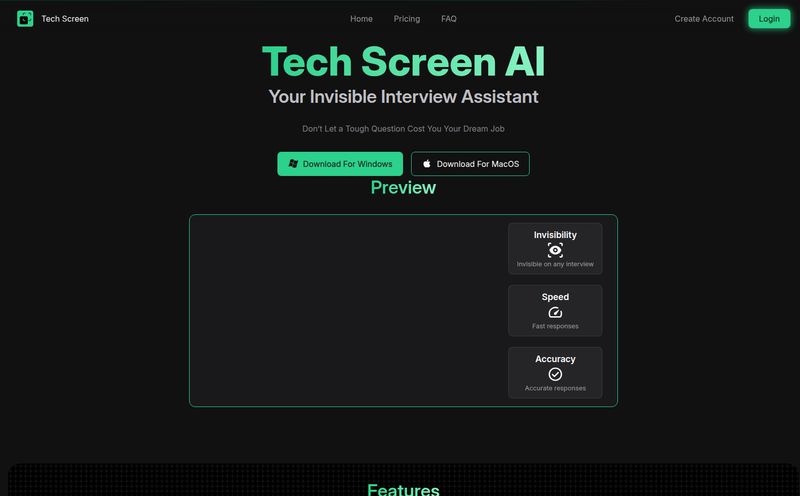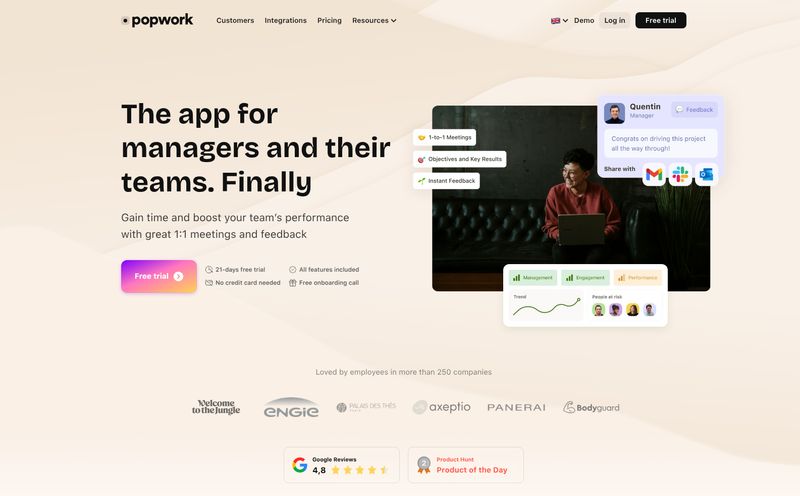I’ve seen a lot of AI writing tools. Seriously, my browser’s bookmark folder is a graveyard of free trials and “game-changing” platforms that promised to revolutionize my content workflow. Most of them are… loud. They burst onto the scene with flashy dashboards, a million templates, and a feature list longer than a CVS receipt. They want to be your co-writer, your editor, your strategist, and probably your therapist if you let them.
And then, I stumbled upon writing.gold.
There was no fanfare. No pop-up chatbot asking if I needed help. Just a name, a simple interface, and a philosophy that felt like a breath of fresh, quiet air in a very noisy room. It bills itself as an “unopinionated AI assistant built to speed up writing without getting in the way.”
Without getting in the way. Huh. Now that got my attention.
So, What is Writing.gold, Really?
Let’s be clear: this isn’t another Jasper or Copy.ai competitor in the traditional sense. It’s not trying to be everything to everyone. From what I can gather, writing.gold is designed as a pure utility. It’s like a finely sharpened pencil, not a 100-piece art set. Its entire reason for being is to help you write faster by providing AI assistance that doesn’t impose its own style or agenda on your work. It’s an accelerator, not a ghostwriter.
I’ve always felt that the best tools are the ones that feel like an extension of your own mind. They don’t fight you; they work with you. This seems to be the core principle behind writing.gold. It’s for the writer who already has a voice and a direction but just needs to get past a block or accelerate the drafting process. It’s the silent partner you’ve always wanted.
A First Impression That Says a Thousand Words (By Saying Nothing)
When you land on the writing.gold homepage, you're greeted by… well, not much. And I mean that as the highest compliment. The page is stark, minimalist, and beautifully simple. A logo, a few buttons for feedback and light/dark mode, and a “Sign in with Google” prompt. That’s it.

Visit writing.gold
There are no over-the-top claims, no animated testimonials, no countdown timers for a special offer. It’s confident in its simplicity. This design choice speaks volumes. It suggests the product is for people who are tired of the marketing fluff and just want to get to work. It’s a tool, not a lifestyle brand. The whole experience feels less like signing up for a service and more like opening a new, clean document.
The Philosophy of an 'Unopinionated' AI
The word “unopinionated” is doing a lot of heavy lifting in their description, and it’s probably the most intriguing part of the whole platform. Most AI models, especially the big ones, have inherent biases and a certain… flavor. You can often tell when something's been written by AI because it has that slightly-too-helpful, perfectly structured, blandly corporate tone.
An unopinionated AI, in theory, would provide suggestions, completions, or rephrasing without nudging you toward a specific style. It’s not trying to make you sound more “professional” or “persuasive.” It’s just giving you the building blocks. This is a subtle but massive difference. It respects the writer's authority.
Who Is This Actually For?
After noodling on this for a bit, I don't think writing.gold is for the absolute beginner who needs their hand held. It’s for the seasoned pro. I’m talking about:
- Bloggers and SEOs who need to pump out drafts quickly but retain their unique voice.
- Developers writing documentation who need clarity and speed, not flowery prose.
- Academics and researchers who need to summarize findings or draft papers without the AI injecting weird, informal language.
- Anyone who experiences writer’s block but cringes at the thought of a robot taking over their creative process.
It's for people who see AI as a collaborator for the grunt work, freeing them up to focus on the big ideas and creative flourishes that only a human can provide.
The Million-Dollar Question: Features and Pricing
Okay, here’s the mysterious part. As of my exploration, there is zero information on pricing. No pricing page, no subscription tiers, nothing. This could mean a few things. It might be in a free beta phase, with the creators gathering feedback before monetization. Or it could be a passion project that will remain free. Or maybe the pricing is revealed after you sign in.
Honestly, the ambiguity is part of its charm. It adds to the feeling that this is something different, built by people focused on the product first and the business model second. A rare sight these days, for sure.
As for features, the primary feature is the minimalist, unopinionated writing assistance. Don’t expect a suite of SEO tools, plagiarism checkers, or social media caption generators. The lack of features is, paradoxically, its main feature.
What I See as The Real Advantages
The most obvious benefit is raw speed. Cutting down the time it takes to get from a blank page to a full draft is the holy grail for any content creator. By being non-intrusive, it helps you stay in the flow state, which is something I personally struggle with when using other, more distracting tools.
But the bigger advantage is the preservation of your own voice. I've worked for years to develop a specific tone in my writing. The last thing I want is an AI that steamrolls it into generic marketing-speak. An unopinionated assistant that just helps with structure and speed is incredibly appealing. It’s like having an intern who can type really, really fast and never questions your creative choices.
The Potential Downside of Simplicity
Of course, this approach isn't for everyone. If you’re looking for an AI to brainstorm a dozen blog post ideas, write a complete first draft from a single prompt, and then optimize it for a specific keyword, writing.gold is probably not your tool. Its minimalism is its strength, but for a power user accustomed to a full suite of features, it might feel a bit… empty.
There's a fine line between minimalist and feature-poor, and where this tool falls on that spectrum will depend entirely on the user's needs and expectations. Some might find the lack of guardrails liberating, others might find it daunting.
Frequently Asked Questions about Writing.gold
I've seen some chatter and questions popping up, so here are my quick takes on the most common ones.
What is writing.gold in a nutshell?
It’s a minimalist AI writing assistant designed to help you write faster without being intrusive or imposing a specific style on your work. Think of it as a speed booster for your existing writing process.
How much does writing.gold cost?
That's the big mystery! Currently, there is no public pricing information available on their website. It might be in a free beta, or the pricing might be revealed after you sign up. For now, it appears to be free to try.
Is writing.gold a good tool for beginners?
In my opinion, probably not for absolute beginners. It seems best suited for experienced writers who already have a strong voice and just want a tool to accelerate their workflow. Beginners might benefit more from tools with more templates and guidance.
How is writing.gold different from Jasper, ChatGPT, or Copy.ai?
The main difference is philosophy. While tools like Jasper aim to be a comprehensive, feature-rich suite for marketing content, writing.gold focuses on being a simple, unopinionated utility. It’s less about generating entire articles and more about assisting you in the moment of writing.
How do I start using writing.gold?
It’s incredibly simple. Just go to their website and click the “Sign in with Google” button. There’s no complex onboarding process, which is very much in line with their minimalist ethos.
Final Thoughts: Is It Worth Striking Gold?
I’m genuinely intrigued by writing.gold. It’s a bold counter-statement to the trend of increasingly complex and bloated AI platforms. It feels like it was made by writers, for writers. It’s a quiet, confident tool that assumes you, the user, are the one in charge.
Will it replace my entire toolkit? No. But will it earn a permanent spot in my workflow for those moments when I just need to get the words out of my head and onto the page, without an AI’s “helpful” opinion? Aboslutely. If you’re a writer who values focus and control, I’d say give it a spin. You might just find that less is so, so much more.
Reference and Sources
- The official tool homepage: writing.gold



